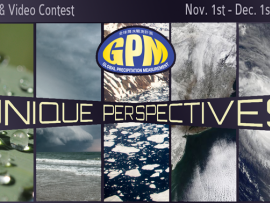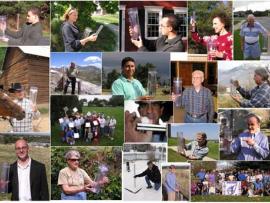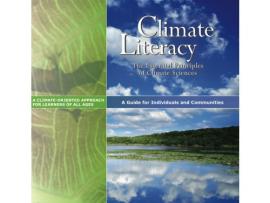Browse 9 - 12 Resources
Browse 9 - 12 Resources
Primary Topic:
Type:
Summary:
NASA’s Global Precipitation Measurement mission wants to see your photos and videos of precipitation from unique perspectives! There are many ways to view precipitation.
Primary Topic:
Subtopics:
Type:
Keywords:
Summary:
The activities in this guide will help students understand variations in environmental parameters by examining connections among different phenomena measured on local, regional and global scales.
Primary Topic:
Subtopics:
Type:
Keywords:
Summary:
CoCoRaHS is a Citizen Science organization that helps participants collect and share precipitation data. They also assist teachers in learning how to install and use rain gauges with their students. Learn how to collect and submit measurements to CoCoRaHS
Primary Topic:
Subtopics:
Type:
Standards:
Keywords:
Summary:
'Towers in the Tempest' is a 4.5 minute narrated animation that explains recent scientific insights into how hurricanes intensify. This intensification can be caused by a phenomenon called a 'hot tower'.
Primary Topic:
Subtopics:
Type:
Standards:
Keywords:
Summary:
This booklet presents important information for individuals and communities to understand Earth's climate, impacts of climate change, and approaches for adapting and mitigating change.
Primary Topic:
Subtopics:
Type:
Standards:
Keywords:
Summary:
This is a downloadable high-resolution booklet that will give the educator in-depth background information on energy concepts. This booklet is a joint project of the Department of Energy and The American Association for the Advancement of Science (AAAS).
Primary Topic:
Subtopics:
Type:
Keywords:
Summary:
Learn how the greenhouse effect keeps more of the sun's heat and energy within Earth's atmosphere causing temperatures on Earth to rise. This video explains the effect warmer temperatures are playing on Earth.
Primary Topic:
Subtopics:
Type:
Standards:
Keywords:
Summary:
The oceans are mostly composed of warm salty water near the surface over cold, less salty water in the ocean depths. These two regions don't mix except in certain special areas, which creates a large slow current called the thermohaline circulation.
Primary Topic:
Subtopics:
Type:
Keywords:
Summary:
Satellite Meteorology learning modules provide scientists and educators with exciting activities and hands-on tools for investigation, inquiry, analysis and stewardship.
Primary Topic:
Subtopics:
Type:
Summary:
Part 4 of a 4 part webquest that teaches the basics of precipitation science and technology. Prepares students for the GPM Anime Contest.











